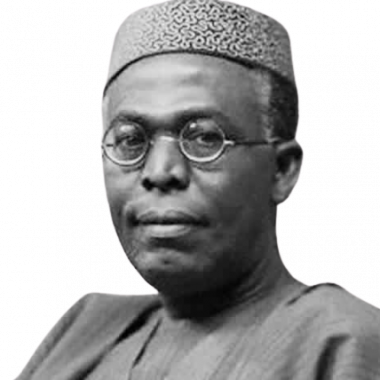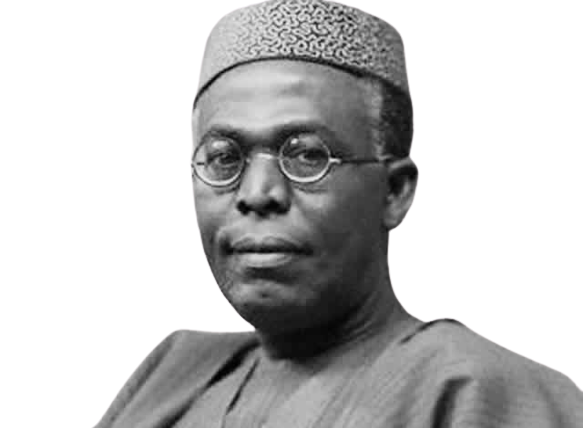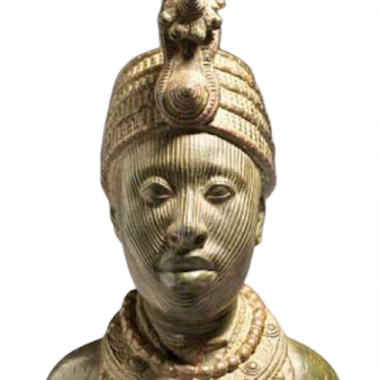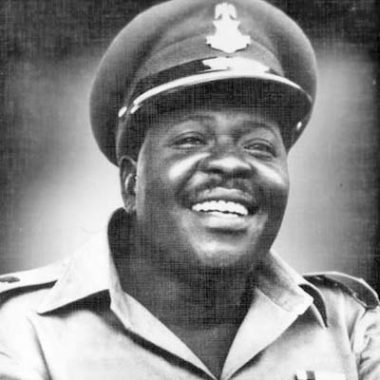
CHIEF OBAFEMI AWOLOWO
CHIEF OBAFEMI AWOLOWO
6 MARCH 1909 – 9 MAY 1987 AGE 78
Obafemi Awolowo was born on 6 March 1909 in Ikenne, in present-day Ogun State of Nigeria. His father was a farmer and sawyer who died when Obafemi was about seven years old. He attended various schools, including Baptist Boys’ High School (BBHS), Abeokuta; and then became a teacher in Abeokuta, after which he qualified as a shorthand typist. Subsequently, he served as a clerk at the famous Wesley College Ibadan, as well as a correspondent for the Nigerian Times. It was after this that he embarked on various business ventures to help raise funds to travel to the UK for further studies. Following his education at Wesley College, Ibadan, in 1927, he enrolled at the University of London as an External Student and graduated with the degree of Bachelor of Commerce (Hons.). He went to the UK in 1944 to study law at the University of London and was called to the Bar by the Honourable Society of the Inner Temple on 19 November 1946. In 1949 Awolowo founded the Nigerian Tribune, the oldest surviving private Nigerian newspaper, which he used to spread nationalist consciousness among his fellow Nigerians. He was the first premier of the Western Region and later federal commissioner for finance, and vice chairman of the Federal Executive Council during the Civil War. He was thrice a major contender for the office of the President in Nigeria. As premier, he proved to be and was viewed as a man of vision and a dynamic administrator. Awolowo was also the country’s leading social democratic politician. He was the official Leader of the Opposition in the federal parliament from 1959 to 1963. In recognition of all these, Awolowo was the first individual in the modern era to be named Leader of the Yorubas: Asiwaju Awon Yoruba or Asiwaju Omo Oodua. In 1992, the Obafemi Awolowo Foundation was founded as an independent, non-profit, non-partisan organisation committed to furthering the symbiotic interaction of public policy and relevant scholarship with a view to promoting the overall development of the Nigerian nation. However, his most important bequests (styled Awoism) are his exemplary integrity, his welfarism, his contributions to hastening the process of decolonisation and his consistent and reasoned advocacy of federalism-based on ethno-linguistic self-determination and uniting politically strong states-as the best basis for Nigerian unity. Awolowo died peacefully at his Ikenne home, the Efunyela Hall (so named after his mother), on 9 May 1987, at the age of 78 and was laid to rest in Ikenne, amid tributes across political and ethno-religious divides.
CHIEF OBAFEMI AWOLOWO
*CHIEF OBAFEMI AWOLOWO
6 MARCH 1909 – 9 MAY 1987 AGE 78
Obafemi Awolowo ni a bí ní ọjọ́ kẹfà Oṣù Kẹta ọdún 1909 ní Ìkénné, ní ìpínlẹ̀ Ògùn ti òde òní ti Nàìjíríà. Bàbà rẹ̀ jẹ́ àgbẹ̀ àti olùṣọ́ tí ó kú nígbàtí Obafemi ti fẹ́rẹ̀ tó ọdún méje. Ó lọ sí àwọn ilé-ìwé púpọ̀, pẹ̀lú Baptist Boys ‘Ile-iwe giga ( BBHS ), Abeokuta; àti léhìnáà ó di olùkọ́ ní Abeokuta, lẹ́hìn ẹ̀yí ó tún yege bíi akọ̀wé kúkúrú. Lẹ́hìnáà, ó ṣiṣẹ́ bíi akọ̀wé ní ilé ẹ̀kọ́ olókìkí Wesley College Ibadan, àti oníròyìn fún ilé iṣé ìt ẹ̀ ìròyìn Nigerian Times. Lẹ́hìn èyí ni ó bẹ̀rẹ̀ ọ̀pọ̀lọpọ̀ àwọn ilé-iṣẹ́ ìṣòwò láti ṣe ìrànlọ́wọ́ láti kó owó jọ láti rin ìrìn-àjò lọ sí UK láti tẹ̀síwájú nínú ẹ̀kọ́ rẹ̀. Ní àtẹ̀lẹ́ ẹ̀tò-ẹ̀kọ́ rẹ̀ ní Ilé-ẹ̀kọ́ gíga Wesley, Ibadan, ní ọdún 1927, ó forúkọsílẹ̀ ní Ilé-ẹ̀kọ́ gíga ti Ìlú London gẹ́gẹ́bíi Ọmọ ilé-ìwé Ìta ósì parí pẹ̀lú àléfà ti Àpón ti Ìṣòwò ( Hons. ). Ó lọ sí UK ní ọdún 1944 láti kàwé òfin ní Ilé-ẹ̀kọ́ gíga ti Ìlú London àti pé a pèé sí Pẹpẹ nípasẹ̀ Ẹgbẹ́ ọlá ti Ilé-iṣẹ́ tẹ́mpílì inú ní ọjọ́ kẹrìndínlógún Oṣù kọkànlá ọdún 1946. Ní ọdún 1949, Awólówò ṣe ìpìlẹ̀ ìwé ìròyìn kan sí orílẹ́-édè Nàìjíríà tí ó mọ ìkọ̀kọ̀ ti orílẹ́-èdè Nàìjíríà, èyítí ó lè tan ìmòye sí orílẹ́-èdè ní àárín àwọn ọmọ Nàìjíríà ẹlẹgbẹ́ rẹ̀. Ó jẹ́ alákóso àkọkọ ti Ekùn Ìwò-Oòrùn àti nígbàmíì ìgbìmọ̀ ìjọba fún Ìsúná, àti igbákejì alága ti Ìgbìmọ̀ Aláse tó ga jùlọ ní àkókò ogun abélé. Ó jẹ ayọ̀ fún olùdíje pàtàkì kan fún ọfiisi alákóso ní Nàìjíríà. Gẹ́gẹ́bí alákọjá, ó sàfihàn pé ó wá àti pé a wòó bíi ọkùnrin ìran àti olùdarí agbára. Awólówò tún jẹ́ olósèlú ìjọba tiwantiwa ti orílẹ́-èdè. Ó jẹ́ alákóso òsìsé ti alátakò ní ilé ìgbìmọ̀ ìjọba àpapò lati ọdún 1959 sí 1963. Ní ìdánimọ̀ gbogbo àwọn wọ̀nyí, Awólówò jẹ́ ẹni àkọkọ ní àkókò òde òní tí a fún lórúkọ alákóso ti Yorùbá, Asíwájú àwọn Yorùbá tàbí Asíwájú ọmọ Oòduà. Ní ọdún 1992, ìpìlẹ̀ Obáfémi Awólówò ni a dá gẹ́gẹ́bí òmìnira, ti kii ṣe èrè agbárí tí kò ní apákan ti ṣe àdéhùn láti ṣe ìlosíwájú ìbáraenisepò ti ètó ìmúlò gbogbo ènìyàn àti sikolashipu tí ó yẹ pẹ̀lú ìpinnu láti ṣe ìgbéláruge ìdàgbàsókè gbogbogbò ti orílẹ́-èdè Nàìjíríà. Bíbẹ́ẹ̀kọ́, àwọn ìbéèrè pàtàkì rẹ̀ ( Ara ti ara ) jẹ́ ìdúróṣinṣin àpẹẹrẹ rẹ̀, àbójútó rẹ̀, àwọn ọ̀rẹ́ rẹ̀ láti yára ìlànà ọ̀ṣọ́ àti ìṣedúró rẹ̀ tí ó ní ìbámu àti ìdí ti ìjọba àpapọ́ tí ó dá lórí ìpinu ara ẹni, èdè àti ìṣọ̀kan àwọn ìpínlẹ̀ tí ó lágbára ti ìṣèlú-bíi ìpìlẹ̀ tí ó dára jùlọ fún ìṣọ̀kan orílẹ́-èdè Nàìjíríà. Awólówò kú ní àlááfíà ní ilé rẹ̀ ní Ikenne, Ilé-iṣẹ́ Efúnyelá ( tí a dárúkọ lẹ́hìn ìyá rẹ̀ ), ní ojó kẹsan, osù kaàrún ọdún 1987, ní ọjọ́-orí méjìdínlọgórin àti pé a gbé sí ìsinmi ní Ikenne, ní àárín àwọn oríyìn kọja àwọn ìpín òsèlú àti ẹ̀sìn.





